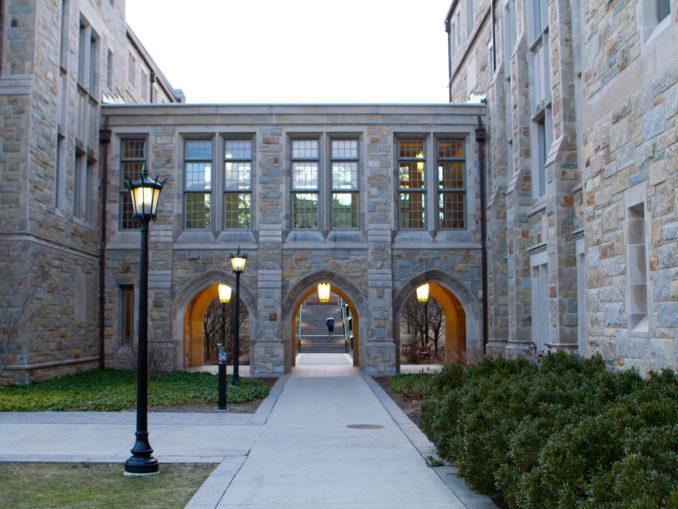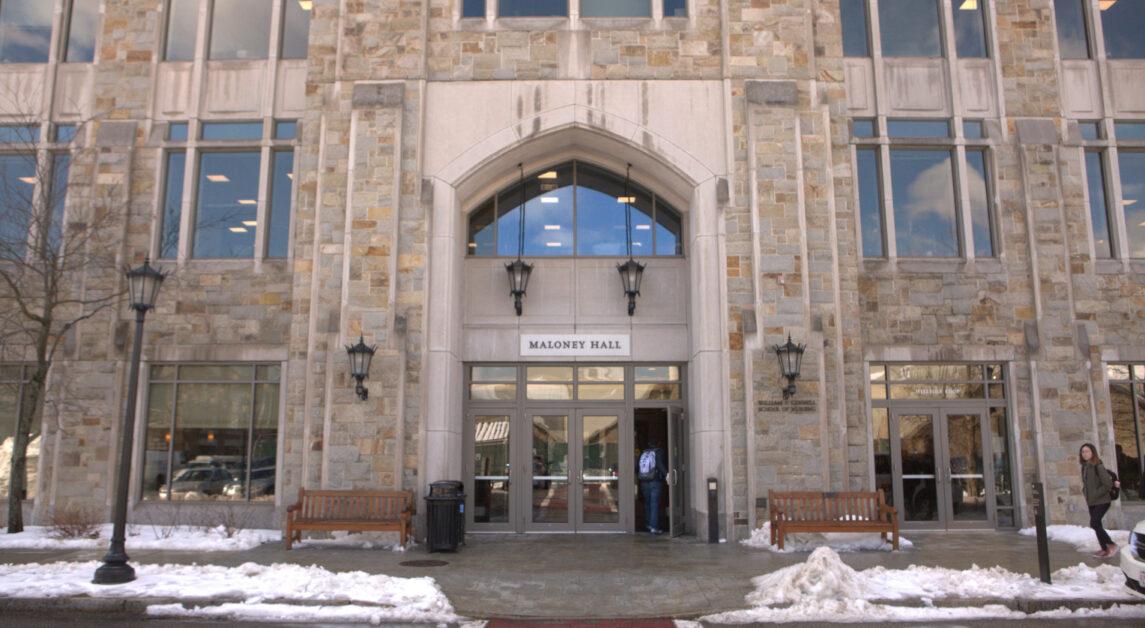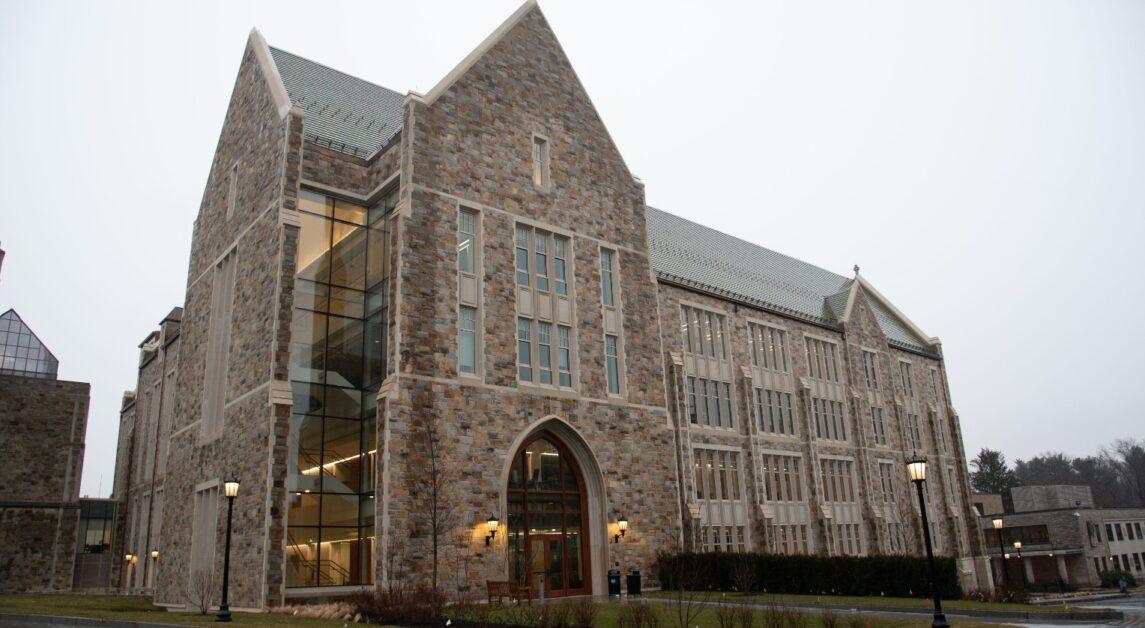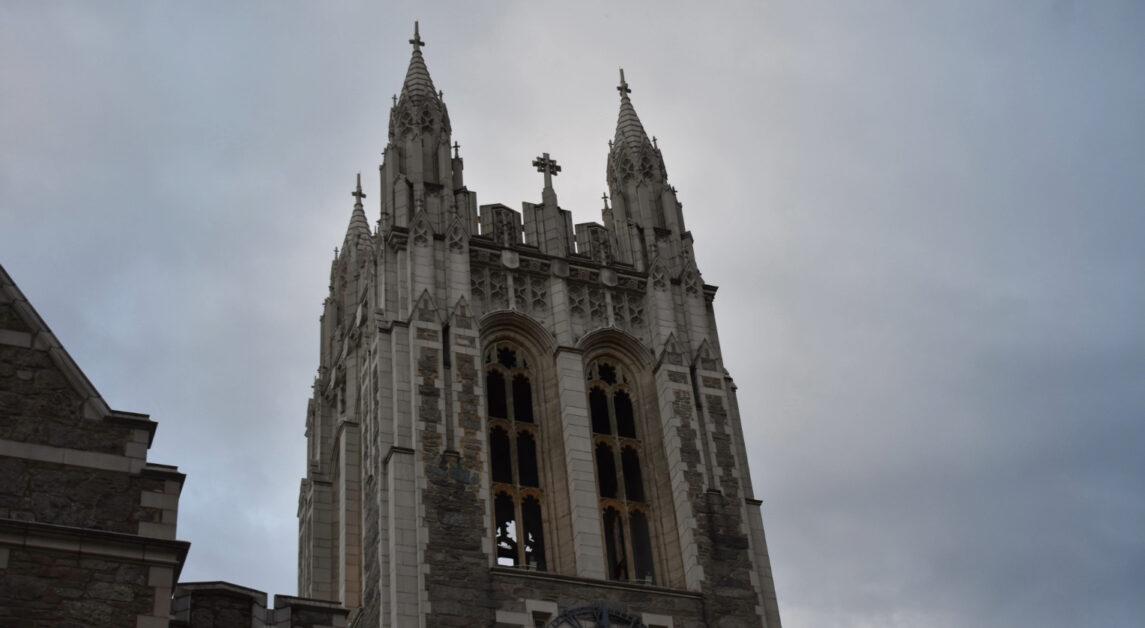The Boston College Global Engagement Committee has released a report that details BC’s current strengths and weaknesses in the way the University engages with the world and outlines steps for it to increase its global presence and impact.
The Global Engagement Committee consists of faculty and administrators from across the University, as well as one graduate and one undergraduate student representative.
The committee conducted interviews with more than 250 members of the BC community, analyzed 22 nationally ranked U.S. universities, and examined global trends in higher education and elsewhere in creating the report. The committee used its baseline research to examine the current state of BC’s global engagement using a model of seven dimensions of internationalization.
“Oftentimes people think global engagement is just student mobility—our students going abroad and international students coming here—but that’s one dimension of seven,” said Alberto Godenzi, the vice provost for Global Engagement and co-chair of the committee.
Some of the issues the committee found in its research were a lack of strategic partnerships with international institutions outside of study abroad programs, limited awareness and financial support for faculty members’ international activities, and a relatively small international student population that could be better diversified—45 percent of international students currently hail from China.
The report then lists strategies for BC to increase its global presence and impact, one of which is giving the campus an international outlook and establishing global learning outcomes in BC academic programs.
Initiatives that would help achieve this goal, according to the report, include infusing more global content into core and major curricula; enhancing programs that have a global focus, such as international studies—which recently made five new hires; and ensuring the inclusion and participation of international students and scholars on campus.
“After [a] course has ended, we would like to see that the student has gained insights on a global level, that a student is … more capable to have a conversation on the global dimensions of a specific issue,” Godenzi said. “A student who studies English or history, the sciences, the social sciences—whatever it is—should come out [of BC] hopefully in a way that he or she is really globally aware.”
Another strategy outlined in the report is for the University to form more strategic alliances—specifically with schools in Latin America and the Iberian Peninsula, as well as Catholic institutions and organizations. The report also suggests the creation of more “collaborative hubs” in key areas around the world, in addition to BC Ireland, starting with one in Latin America and one in East Asia.
The committee also proposes creating better practices to help faculty be successful in international settings, such as an online database of information on BC’s international endeavors and an increase in financial support for their international undertakings. It also proposes establishing a visiting fellows program that would bring in international faculty for a semester or year, as well as increasing the number of endowed professorships with a global academic focus.
Godenzi noted that as current technology makes it easier for the University to advertise open faculty positions to anyone in the world, BC has been able to hire more international faculty members.
“I think that makes us stronger in so many ways,” Godenzi said. “I mean, the ultimate goal of this internationalization is not internationalization itself, it is to make this University stronger in everything that we do. If you internationalize your faculty and your students, it has the same effect if you advance any diversity and inclusion goals. … You will have a richer experience for students, and you will have a strong faculty and research.”
The report also recommends increasing students’ access to international learning opportunities through financial support for study abroad programs and strengthening the methods by which BC recruits international students.
Godenzi noted that BC can’t be everywhere, so he and his colleagues try to think about where it makes the most sense for BC to have a stronger presence.
“Right now the global brand of Boston College is not very well known. We haven’t developed it really enough. … Wherever you go, you say ‘Harvard,’ [and] people immediately say, ‘Oh, of course, Harvard.’ That’s not happening with Boston College.”
One of the hurdles BC faces, according to Godenzi, is the word “college” in the name because, in some countries, people identify the term with high school.
“Once we overcome these kind of obvious things, we have to make sure that that the faculty research, the student outreach that we do, the alumni outreach are somewhat strategically connected and consolidated,” he said.
While BC currently does not offer financial aid to undergraduate international students, the committee suggests beginning to offer financial aid to a select group of them, specifically international students from Jesuit high schools, in order to attract more high-achieving students from around the world.
To ensure that these strategies in the report are executed, the committee proposes creating, funding, and staffing a unit that would centralize all of the University’s global engagement activities. The unit would also act as an umbrella for existing international offices, such as the Office of International Programs and the Office of International Students and Scholars, according to the committee.
The report’s conclusion offers a hypothetical look into what BC would like in 2028 should all the initiatives be successfully executed: Publications in international journals, internationally funded research projects, and contributions from international donors will have increased, it says. The international percentage of the student body will see increases as well: It would rise to about 10 percent and consist of students from a more balanced proportion of countries, according to the report.
The description of the hypothetical BC 2028 also includes higher seeds for BC in world university rankings, enhanced ties with global Catholic networks, and stronger global employability for graduates.
Increasing BC’s global presence and impact was part of the University’s Ever to Excel strategic plan, released in 2017. While creating the document, committee members met with University President Rev. William P. Leahy, S.J., and Provost and Dean of Faculties David Quigley several times to receive feedback and ensure their work aligned with the larger strategic plan, the report states. They also held two town hall meetings to discuss their work with faculty, staff, alumni, and students.
“There’s really room for us to be engaged, and so I think going forward, this has great potential to transform the University into [a] globally committed Boston College,” Godenzi said.
Featured Image by Jonathan Ye / Heights Editor



















